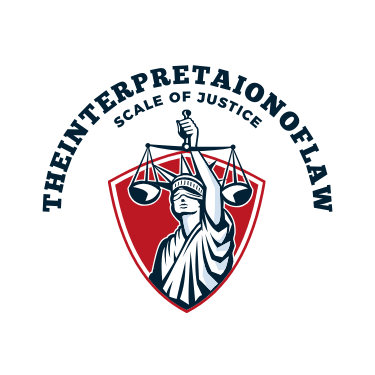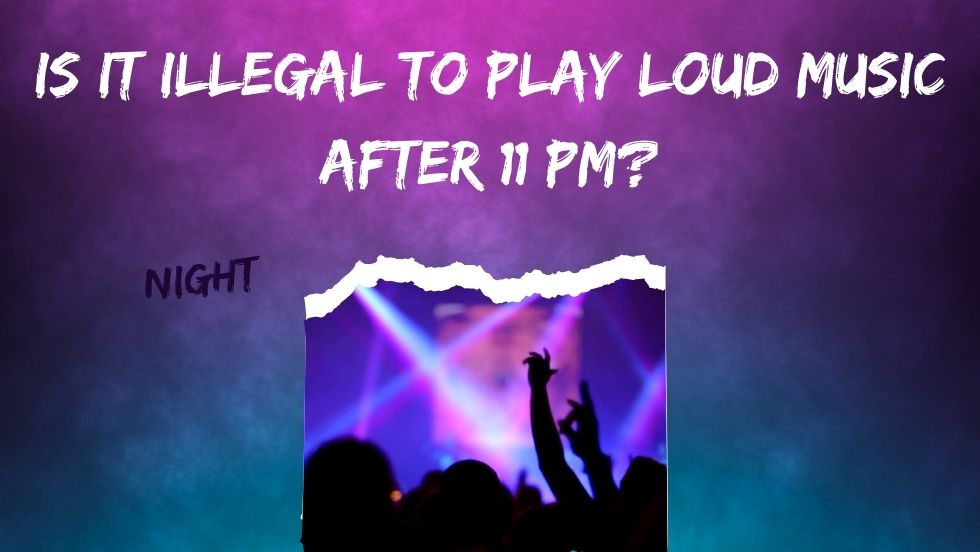If you’re a night owl or a music lover, the question of whether playing loud music after a certain hour is not just common but a matter of potential legal trouble. It’s one of those grey areas that can be frustratingly unclear, leading to tension among neighbors and potentially, a visit from the local authorities.
This blog aims to untangle the knotty question and provide a comprehensive understanding of relevant laws, local ordinances, penalties, and what to do if the noise complaint is at your door. Whether it’s jamming out in your basement or throwing a spontaneous party, here’s everything you need to know.
Understanding Noise Regulations
Many counties and cities have ordinances addressing loud and unreasonable noise. These regulations are intended to protect the health, safety, and welfare of residents, and generally, come with the stipulation that noise levels should be minimal during the night to support a peaceful night’s sleep. The specific details of these ordinances can vary widely and can be confusing, but the intent is clear: to maintain the tranquility of residential areas during nighttime hours.
For many jurisdictions, the noise ordinance includes a ‘quiet period’—commonly from 10 pm to 7 am—where the permissible decibel levels are significantly lower. Understanding the decibel levels that constitute ‘loud’ or ‘unreasonable’ can be helpful, with many cities specifying 50-55 decibels as the limit during these periods. Keep in mind, these numbers are comparable to the sound of a quiet suburb or conversational speech.
Is It Illegal to Play Loud Music After 11PM ? Local Laws and Ordinances
In the United States, local laws determine when loud music becomes too loud, potentially bringing unwanted attention. The key is to check with your municipal government or local law enforcement to determine the specifics for your area.
For cities like New York and Los Angeles, playing music at a level that’s perceptible 50 feet from the source between 10 pm and 7 am is prohibited. Numerous other cities and counties have similar rules with varying degrees of enforcement and penalties.
The Noise Control Act of 1972 is the federal law that authorizes the Environmental Protection Agency (EPA) to establish and enforce noise standards for various sources of sound. The act requires states to adopt noise control ordinances substantially similar to EPA’s model ordinance, and most areas have done so.
The law dictates that music after 11 pm is illegal, but this is dependent on the local ordinance. It’s essential to read up and consider calling your municipal office or law enforcement for consultation.
Penalties and Consequences
The penalties for violating noise ordinances can range from a simple warning to monetary fines, depending on both the local policies and the severity of the noise. If the police get involved, you could face a citation, which might result in a court appearance and potentially a small fine. However, the punishment can be more severe if noise complaints are frequent or if the disturbance is deemed severe enough to warrant police intervention.
In addition to legal consequences, there are also social implications. A major component of the penalty is the annoyance or loss of goodwill experienced by your neighbors. Over time, repeated violations of noise ordinances could strain your relationships with those around you, including the possibility of legal action from affected neighbors.
Exceptions and Exemptions
Understanding the exceptions and exemptions to these noise regulations is as crucial as knowing the rules. There are instances where playing loud music after 11 pm might be allowed. For example, private property owners with a special event permit may be given leniency during the times of their permitted event.
On the other hand, emergencies and necessary maintenance are often exempt from noise regulations. The most common exempt organizations are those deemed to be operating in the public’s interest, such as construction companies working on an unexpected issue or hospitals running at full capacity.
The specifics of these exceptions and exemptions will be outlined in local ordinances, but they’re an important defense for those making noise under legally exempt circumstances.
How To Tell if Music Is Too Loud?
When it comes to measuring the acceptability of sound levels, there are a few things to consider. Distance from the source, persistence of the sound, and the overall volume level are all factors that come into play. The EPA sets guidelines for music and noise levels, with inside volumes typically being kept at 45dB or lower to prevent disturbance.
However, it’s important to keep in mind that this measurement is subjective and may not necessarily reflect what your neighbors can hear. If you live in a building with thin walls or in a cramped housing complex, you’re more likely to experience noise disturbance that could potentially anger your neighbors. Excessive noise can also lead to legal consequences and breach the Noise Control Act.
Outside noise is also limited, with 55dB being the suggested guideline, which takes factors such as industrial work and barking dogs into consideration. In cities and other busy places where constant noise is the norm, noise complaints are typically handled differently. It’s important to consider the volume of noise you’re exposed to as noises exceeding 70dB over long periods can lead to long-term damage.
Is It Illegal to Play Loud Music After 10 PM?
The legality of playing loud music after 10 PM varies by location due to the differing noise ordinances. In general, many areas enforce noise control measures that restrict loud sounds, including music, during nighttime hours to prevent disturbances. These restrictions often begin at 10 PM and last until the early morning hours, reflecting a community standard for quiet time.
However, specific regulations and allowable decibel levels can differ significantly between municipalities. It’s essential to consult local laws and ordinances to determine the exact rules applicable in your area. In cases where loud music is played outside of these permissible times and exceeds the allowed decibels, it could indeed be considered illegal, potentially leading to fines or other penalties.
How To Deal With Neighbors Playing Loud Music After 11 PM
Allowing disruptions to your peace can lead to undesirable outcomes, therefore prompt action is necessary. Here are steps to address disturbances like loud music and other noises.
Firstly, Request to Your Neighbor
The first step is to approach your neighbor and politely inform them of the disturbance. It’s possible that they weren’t aware that their music was too loud or causing a disturbance.
Contact Your Landlord or Homeowner’s Association (HOA)
If you’re renting your home, contact your landlord and let them handle the situation. They may have more authority to deal with the issue or may have contact information for your neighbor’s landlord.
If you live in a HOA community, reach out to the association and report the situation. They often have rules and regulations regarding noise levels that can be enforced.
Contact Local Law Enforcement
If all else fails, it’s within your rights to call law enforcement if your neighbor refuses to cooperate. They may come out and issue a citation or warning, as well as mediate the situation between you and your neighbor.
FAQs
Can Neighbors Complain About Noise During the Day?
While there is more tolerance for noise during daylight hours, noise complaints can still be lodged if the noise is excessive, continuous, or a result of a nuisance activity.
What Number to Call for Noise Complaint?
The best number to call for a noise complaint is the non-emergency number for your local police department. It’s crucial to use the non-emergency line for issues that do not require immediate police attention.
Conclusion
Understanding the legality and implications of playing loud music after 11 pm is essential. It’s not just about being a good neighbor—it’s also about avoiding unnecessary legal trouble. Be mindful of local noise regulations, be proactive with your neighbors, and know your rights. By taking these steps, you can enjoy your music to the fullest without worrying about a knock on your door from the authorities. After all, music is about connecting, not creating discord.

Carter Wilson is a licensed lawyer with over 10 years of experience in various legal fields. He is passionate about making law accessible to the general public and helping individuals navigate through complex legal matters.

